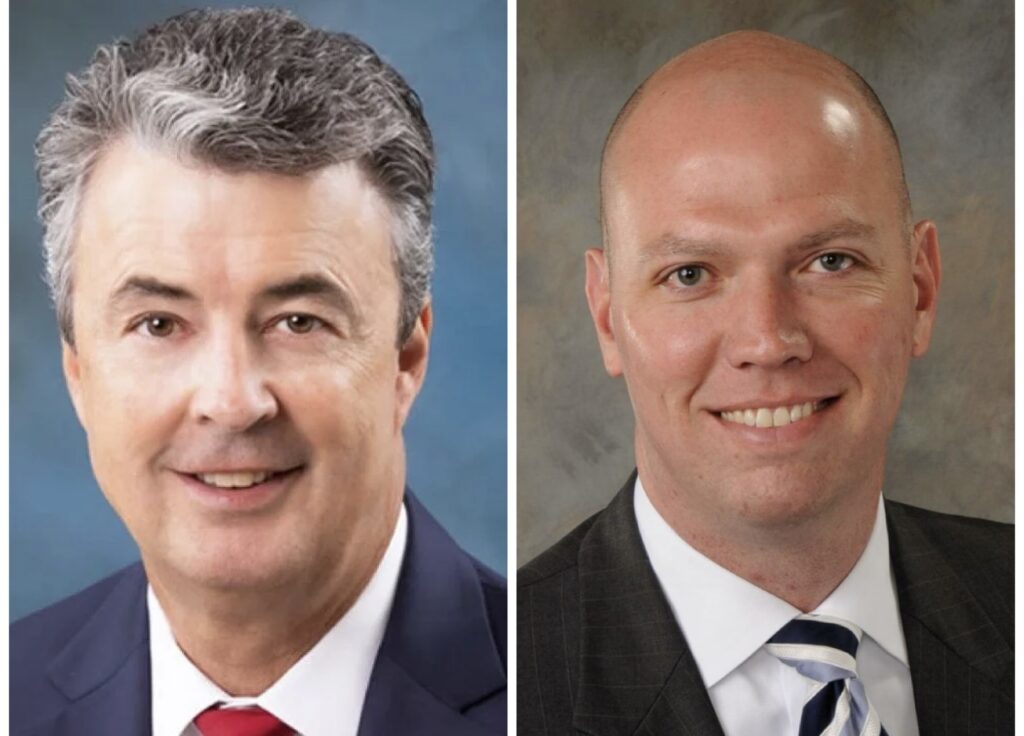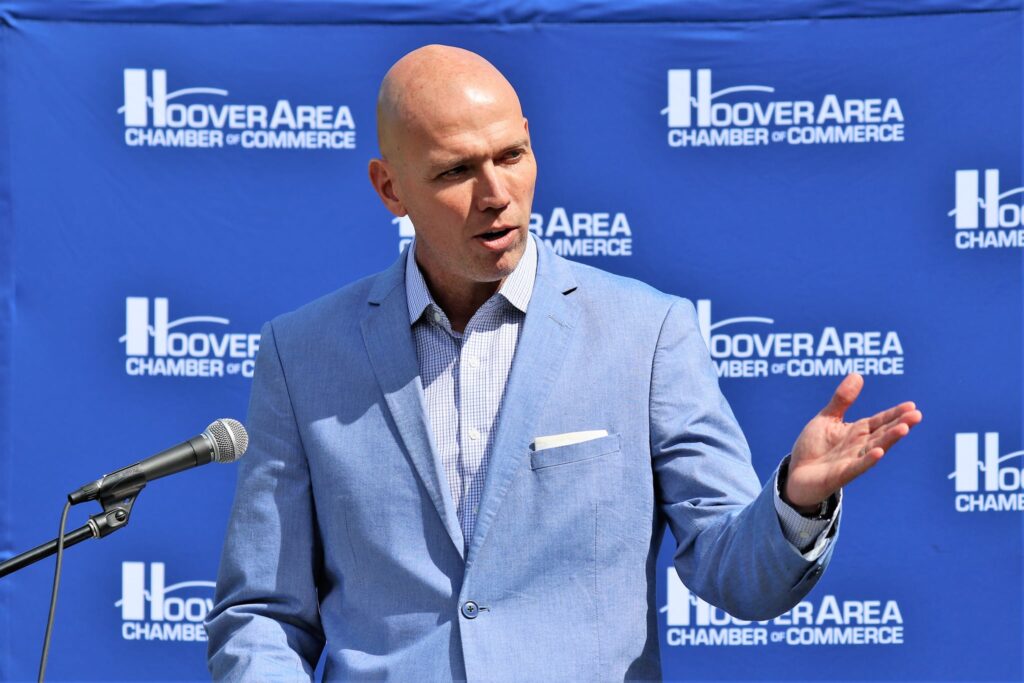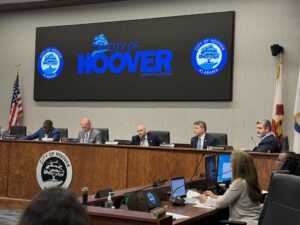Hoover Council President John Lyda describes “financial disarray” and notes fraud possible

A month ago, Alabama Today submitted a formal public records request to the City of Hoover, copying City Councilors John Lyda and Curt Posey on that email. While City Clerk Wendy Dickerson acknowledged receipt of the request, so far, the city has failed to produce a single record, return a phone call, or give a status update about it. An email exclusively obtained by Alabama Today sheds light on some of what the city is hiding by withholding the requested public documents. Lyda emailed the rest of the council on April 9, 2024, with the subject line “Hoover Forensic Audit- Kroll Proposal.” Good afternoon, Wallace Jordan has researched several options and vetted various individuals and firms for the completion of a forensic audit on city finances. Attached is a proposal from Kroll Investigative Analytics. I know there is a shared desire to get moving on this ASAP so that we can get assurance that the recent discovery of financial disarray is due to human error or carelessness rather than fraud. The cost is estimated to be between $145k and $177k and is expected to take between 60 and 90 days. Please let me know ASAP if you believe there’s sufficient reason not to move forward on this. Phillip will also be happy to provide any info on other firms and individuals they spoke with in finding the right fit for our needs. Thank you! John According to Lyda’s email, the forensic audit was expected to take 60-90 days. That was 92 days ago. Two sources tell Alabama Today that the forensic audit includes an investigation into unconfirmed reports of documents protected by the state document retention laws intentionally deleted by a former city staffer. Attorney General Steve Marshall’s office has a Special Prosecutions Division that has prosecuted ethics violations by city officials in recent years. Their website states, “This division prosecutes mainly public corruption and complex economic crimes. The special prosecutions division works with federal and state agencies to conduct joint investigations and prosecutions. In addition, the division assists various commissions and agencies with prosecutions.” It is unclear if the City of Hoover has yet been in contact with investigators for the state about Lyda’s concerns. As reported first in 1819 News, City Councilwoman Khristi Driver revealed the forensic audit publically for the first time in sworn testimony during the hearings contesting the Certificate of Need that the Hoover City Healthcare Authority has asked the state for. On May 30, Driver testified, “My understanding of the purpose of the audit would be to take a look at all of our financials to make sure that everything is in order and to follow up on some of the observations that were made in our most recent audit from our regular auditor.” According to the Hoover Sun, the last audit report for fiscal 2022 noted “some material weaknesses and significant deficiencies in the city’s internal controls. The material weaknesses included insufficient segregation of duties over financial reporting by an outsourced contractor at the Hoover Metropolitan Complex and errors and problems related to implementing a new business software system. The significant deficiencies dealt with the recording of accounts receivable transactions and the holding of checks for vendors.” An examination of publicly available records by a financial expert indicated that internal control weaknesses were found rather than material weaknesses, as described by Hoover Sun. Despite the concerns in the audit report, the Sun reported at the time that Hoover Mayor Frank Brocato “was not alarmed.” City officials have not publicly addressed the forensic audit, how it is being paid for, or how it impacts the timing and delivery of yearly annual audit from the city’s longtime auditor Barfield, Murphy, Shank & Smith (BMSS) Advisors and CPA. Earlier this year, the City of Homewood announced that it retained an independent forensic certified public accounting firm to investigate the theft of city funds and notified the Jefferson County district attorney and the FBI. A city employee was then arrested and charged with misappropriating city funds for allegedly stealing over six figures.
Apryl Marie Fogel: Hoover City Council President John Lyda’s Quarterback Fake

Here in Alabama, football is beloved; there’s nothing like an unexpected play in a big game, something like a quarterback fake—a play requiring skill and precision akin to a magician’s sleight of hand. But while deception entertains on the field or stage, it’s troubling in local politics. Hoover has been rocked of late by confounding admissions, accusations, and unanswered questions, dividing the city council and fracturing relationships. Some are unaware of the turmoil at City Hall, while others ponder the way forward. City leaders, led by Mayor Frank Bracoto and Council President John Lyda, have sought to downplay or ignore question upon question and issue upon issue. City Administrator Ken Grimes followed their lead earlier this week and responded to concerns posed by residents on Facebook. Though the story he was responding to provided video evidence of a direct quote by the CFO and statements made in sworn testimony by the mayor, Grimes called it “junk taken out of context.” He didn’t clarify whether it was the mayor’s comments or the CFO’s that he believed was junk or what additional context he thought was needed to understand why a lease was signed before the costs were known or why the mayor said under oath that he hadn’t read it. Observers agree that the unfolding saga is more complex than officials admit, and a resolution is unlikely unless transparency improves. Could these issues be a series of unintentional and unrelated fumbles? Perhaps, but why would those involved leave them lingering and unaddressed for so long? For several years now, Lyda, Brocato, and their supporters have treated nearly every inquiry of questionable behavior as mere distractions rather than cause for concern. Until now, different situations have been treated as one-offs rather than a pattern, but a clear pattern is emerging, and I’m here to lay it all out for you in story form. Why story form? While not exactly boring in these circumstances, the interworkings of city government aren’t particularly riveting either. The facts laid out here are just that: facts. They stem from dozens of interviews, reviewing dozens of media stories, council meeting videos (no thanks to the city), searching for documents buried in dense public meeting packages, and reviewing audio recordings of testimony from the sparsely attended recent hearings. The city itself has been…less than helpful. Buckle up for a true story told in parts to bring the many converging details together for the first time. This is, without a doubt, just the beginning. Chapter 1: Darkness Slowly But Steadily Descends on the Field Once upon a time, Hoover seemed to have a government guided by the conservative values of small government, fiscal responsibility, transparency, and accountability. However, as the city’s population, economy, and infrastructure grew, sunshine faded on the public information accessible to those who live, work, and do business there. I live in neighboring Birmingham and heard the city was overwhelmingly conservative, so imagine my surprise when I learned that while the state was going forward, Hoover was going backward with public information. Around August 2021, city officials sparked controversy by deleting years of council meeting videos from their official YouTube channel without notice or explanation. When confronted, no one would take responsibility for the decision. The city attorney, Phillip Corley, told The Hoover Sun, “This was a council policy communicated by the council president to the city clerk.” The Sun asked follow-up questions about the conflicting information from the City Attorney and evidence of when the videos were discovered missing, and his questions were ignored. The move to limit the availability and coverage of videos prompted the launch of The Hoover Channel, a YouTube page with over 200 videos created by Robin Schultz. He and his teenage grandson, Jackson Schultz, maintain the site. Based on what I witnessed at the last council meeting, Jackson did the technical camera work while Robin sought answers and accountability from the council himself. After the meeting, Jackson hurried his grandfather along to help him pack up the bags of equipment they used. After the council was questioned about the deletions, Lyda informally polled the council members and formalized a new policy. The new one restricted the city’s livestream. It would now end before the public comments section of the meeting, and the city was now not only allowed to delete the videos after 60 days or after minutes had been approved but required to do so. I’ve talked to multiple people about this, and not one person can explain the positive benefit of deleting the videos for the city if there’s no liability related to what has been done or said. Corley, the city attorney, defended the council’s actions. I’m paraphrasing here, but he essentially said residents who want public meetings, made and kept public using equipment they’ve paid for, are ungrateful little curious cash cows for the city who are lucky to get any video at all and should take what he and the council decided behind closed doors to give them and shut up. Okay, I added a lot of color to that last part. His actual quote was, “He advised the city that state law does not require meetings to be videoed or livestreamed, or for recordings of meetings to be made or preserved.” It’s worth noting that Corley’s name comes up again at least twice in this sordid series of stories. First, when the city increases the outside attorney budget by $500,000, and then when the mysterious forensic audit becomes public. These moves and curious cleanup, some would say coverup, were just the beginning. Residents and other sources have pointed out that the meeting minutes of city council meeting have also undergone changes over the last several years. Descriptions of council actions have become incredibly vague, often omitting crucial details of pre-vote discussions and questions/answers relevant to future research, reporting, and glorious editorial storytelling. Remember that these half-baked minutes are all the city attorney says the law requires them to do. If he and Lyda had their way, you would not


